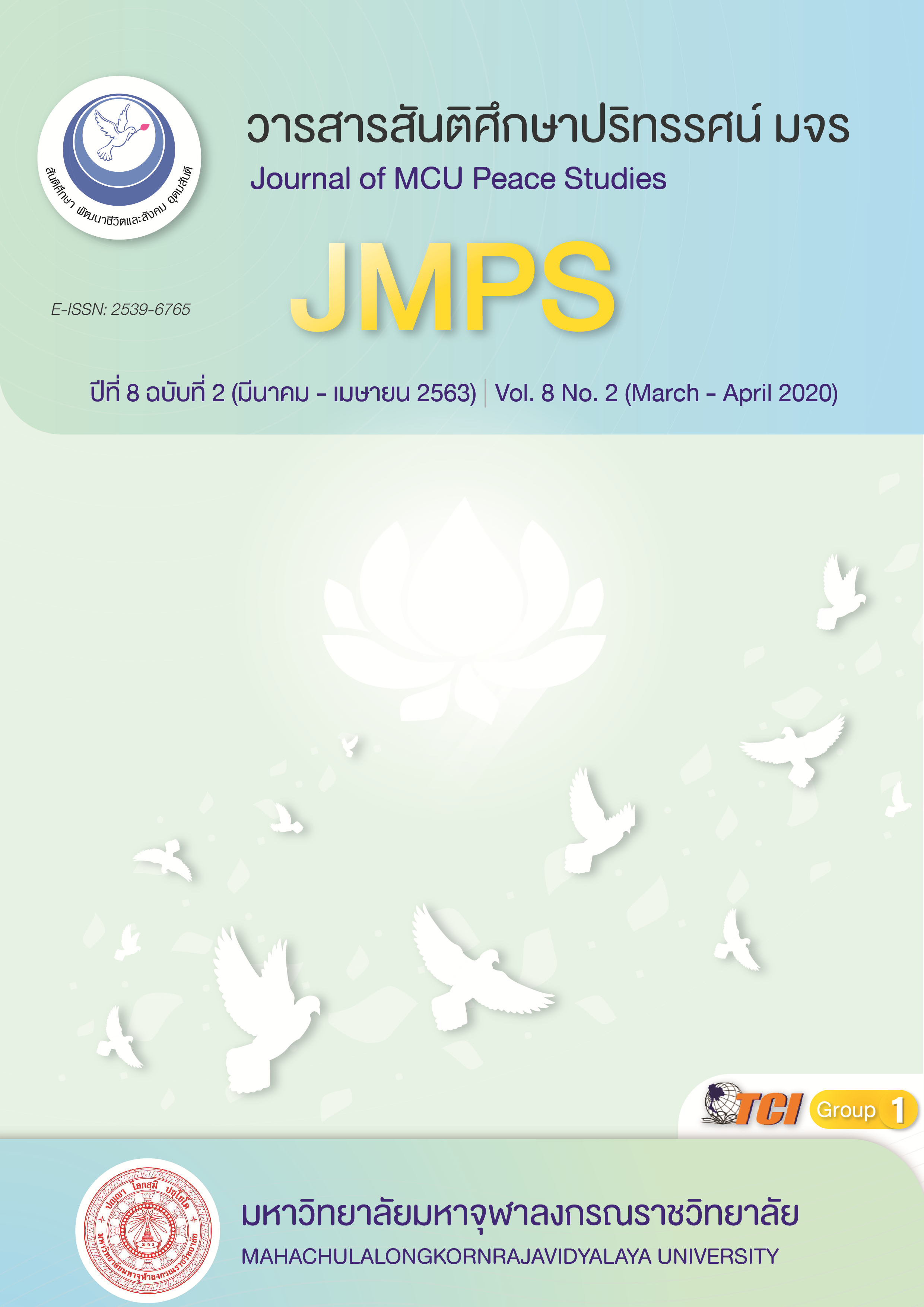บทบาทของศูนย์การศึกษานอกระบบและการศึกษาตามอัธยาศัยในเขตกรุงเทพมหานครต่อการสร้างการมีส่วนร่วมและเครือข่ายการเรียนรู้ตลอดชีวิต
Main Article Content
บทคัดย่อ
บทความวิจัยนี้เป็นการวิจัยเชิงคุณภาพมีวัตถุประสงค์ 1) เพื่อศึกษาหลักสูตรที่เปิดสอนโดยศูนย์การศึกษานอกระบบและการศึกษาตามอัธยาศัย (กศ.น.) 2) เพื่อวิเคราะห์บทบาทของ กศ.น. ที่ส่งผลต่อการสร้างการมีส่วนร่วมและเครือข่ายการเรียนรู้ตลอดชีวิต และ 3) เพื่อศึกษารูปแบบการแสวงหาคำปรึกษาแนะนำการศึกษาตลอดชีวิตจาก กศ.น. โดยทำการศึกษาในพื้นที่กรุงเทพมหานคร 6 พื้นที่ โดยเลือกศึกษาพื้นที่ละ 1 เขต ได้แก่ (1) สัมพันธวงศ์ (2) บางนา (3) ลาดพร้าว (4) ลาดกระบัง (5) บางกอกใหญ่ และ (6) ภาษีเจริญ กลุ่มตัวอย่าง จำนวน 60 คน ซึ่งเป็นตัวแทนจาก ผู้บริหารศูนย์ ฝ่ายปฏิบัติการ คณาจารย์ ผู้นำชุมชน และผู้เรียน เก็บข้อมูลโดยการศึกษาเอกสารและการสัมภาษณ์เชิงลึก และทำการวิเคราะห์เนื้อหาแล้วนำเสนอเชิงพรรณนาความ
ผลการศึกษาพบว่า 1) หลักสูตรที่เปิดสอนมีทั้งหลักสูตรแกนกลางและหลักสูตรฝึกอบรมระยะสั้นซึ่งเกิดจากการมีส่วนร่วม 4 ประสานทั้งฝ่ายบริหาร ฝ่ายปฏิบัติการ ชุมชน และผู้เรียน 2) บทบาทของฝ่ายบริหารและฝ่ายปฏิบัติการทำให้เกิดการมีส่วนร่วมเป็นเครือข่ายการเรียนรู้ตลอดชีวิตได้ ดังนี้ สร้างการมีส่วนร่วมเครือข่ายการเรียนรู้ตลอดชีวิต ให้ความร่วมมือและการสนับสนุนชุมชน จัดกิจกรรมที่สนองตอบความต้องการของชุมชน ส่งเสริมให้เกิดความรักและความสามัคคี ประยุกต์ใช้เทคโนโลยีในการดำเนินการ จัดหาวิทยากรที่ได้มาตรฐานหลักสูตร และ จัดตั้งกลุ่มแลกเปลี่ยนเรียนรู้และสานสัมพันธ์อันดีกับชุมชน 3) รูปแบบการแสวงหาคำปรึกษาแนะนำ ได้แก่ (ก) การเป็นสถาบันสั่งสมคลังความรู้อย่างเป็นระบบ (ข) การจัดหลักสูตรที่ตอบสนองความต้องการของชุมชน (ค) การเป็นศูนย์การเรียนรู้ตลอดชีวิต 4) เป็นสถาบันพี่เลี้ยงเครือข่ายชุมชน และ 5) เป็นศูนย์ฝึกอบรมทักษะอาชีพ
Article Details
ทัศนะและความคิดเห็นที่ปรากฏในบทความในวารสาร ถือเป็นความรับผิดชอบของผู้เขียนบทความนั้น และไม่ถือเป็นทัศนะและความรับผิดชอบของกองบรรณาธิการ ยินยอมว่าบทความเป็นลิขสิทธิ์ของวารสาร
เอกสารอ้างอิง
Adulyahasem, U., & Ngamwittayapong, O. (1997). Educational system with community: Conceptual framework and research proposal. Bangkok: Plan Printing.
Chareonwongsak, K. (2000). Network Management: Important Strategies for Educational Reform Success. Bangkok: S. Asia Press.
Kavevon, P., Ratana-Ubol, A., & Geratiburana, Y. (2018). A Model Development for Promoting Long Life Education on Sufficiency Economy Towards Agriculture-based Highland Communication. Panyapiwat Journal, 10 (2), 240-250.
Kemm, J., & Close, A. (1995). Health Promotion: Theory and Practice. London: Macmillan.
Office of Non-Formal and Informal Education. (2008). Documentation, principles, and concepts for formal education operations: Non-formal education. Bangkok: Educational Supervisor Unit Office of Non-Formal and Informal Education.
Rangsreechatchawan, D. (2018). A study homeschool educational management model and government agencies’ involvement consistent with learners. Chiang Mai Rajabhat University.
Ratana-Ubol, A. (1999). A study of the use of computer assisted instruction on law for women participating in non-formal education activities. Bangkok: Chulalongkorn University.
Richardson, D. B. (1994). Networking. New York: John Wiley & Sons.
Tantivejkul, S. (2007). Rural Development. Retrieved December 19, 2019, from http://guru.sanook.com/enc_preview.php?id=2836.
Tharmawitigul, A. (2010). Supervision Techniques: Nanny System and Counseling (Mentoring). Retrieved December 15, 2019, from http://panchalee.wordpress.com/2009/07/28/mentoring/.
The Non-Formal and Informal Education Promotion Act 2008 (2008). Government Gazette, Vol. 125, Section 41 A, Page 1, 3 March 2008.
Turners, J. H. (1998). The structure of sociological theory. (6th ed.). New York: Wadsworth Publishing.
Valaisathien, P. et al. (2000). Process and work techniques of developers. Bangkok: The Thailand Research Fund (TRF).
Zikmund, G. (2003). Business research methods. (7th ed.). Mason, OH: Thomson South-Western.


